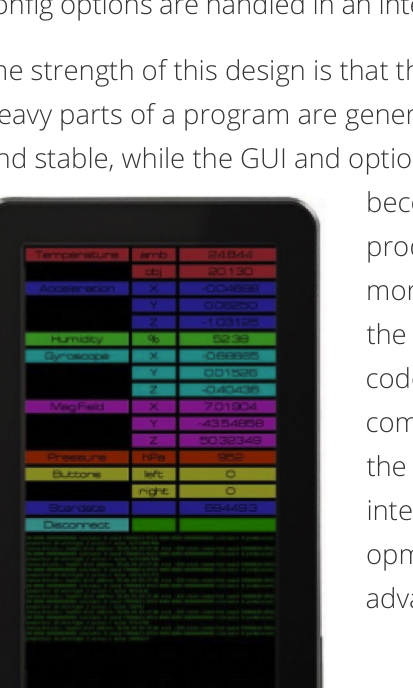ABU 28-jan-2017
tclMuPdf is a porting of the MuPDF framework (see at mupdf.com ), for fast and high-quality rendering of PDF pages.
History
- 13-dec-2016 - Version 1.0b1 (beta) released. No support for MacOS
- 15-dec-2016 - Version 1.0 - Support for MacOS. API unchanged, but big internal optimization for reusing opened pages (read
- 28-jan-2017 - Version 1.1 - new commands: fields, field, anchor, mupdf::libinfo . Added package mupdf-notk for tcl-only usage. (read the documentation). Aligned with core library MuPDF v.1.10a
Download
Version 1.1 is still distributed in a pre-built package with multi-platform support, but if you only need support for a single platform, you can download a lighter package.
Note that a specific platform support (e.g. "Linux 32") is not referred to the hosting O.S. architecture, but it's referred to the architecture of the TclTk interpreter. E.g. if you have a 32-bit TclTk interpreter running on a 64-bit Linux, you need the tclMuPdf package for linux-x32.
- [L1 ] FULL (Win 32/64, Linux 32/64, MacOS) (Warning: 28 MB)
- [L2 ] (Win 32/64) (11 MB)
- [L3 ] (Win 32 only) (6 MB)
- [L4 ] (Win 64 only) (6 MB)
- [L5 ] (Linux 32/64) (11 MB)
- [L6 ] (Linux 32 only) (6 MB)
- [L7 ] (Linux 64 only) (6 MB)
- [L8 ] (MacOS 64 only) (6 MB)
- ---
- [L9 ] tclMuPdf Development-Kit. For developers/maintainers.
Examples
| code | output |
|---|---|
| $page0 savePNG img0.png -zoom 0.5 |  |
| $page2 savePNG x2.png -zoom 2.75 -from 50 450 200 700 |  |
tclMuPdf 1.0 Tcl meets mupdf
SYNOPSIS
package require Tcl 8.5
package require mupdf ?1.0?
- mupdf::open filename
- pdfHandle npages
- pdfHandle getpage n
- pdfHandle openedpages
- pdfHandle closeallpages
- pageHandle size
- pageHandle docref
- pageHandle pagenumber
- pageHandle savePNG filename ?-zoom zoom? ?-from x0 y0 x1 y1?
- pageHandle saveImage image ?-zoom zoom? ?-from x0 y0 x1 y1? ?-to x0 y0?
- mupdf::close handle
- mupdf::isobject handle
- mupdf::type handle
- mupdf::documents
DESCRIPTION
Package mupdf integrates the MuPDF framework in Tcl. The focus of MuPDF is on speed, small code size, and high-quality anti-aliased rendering. The main goal of this integration is to generate images of the PDF pages, in a .png format, or directly in a Tk's photo image type. Thanks to its speed mupdf can be used for building interactive PDF-viewers with high-quality and real-time zooming. mupdf is a binary package, distributed in a multi-platform bundle, i.e. it can be used on
- Windows 32/64 bit
- Linux 32/64 bit
- MacOS 64 bit
Just an example to get the flavor of how to use mupdf:
# open a file and save 1st page as a .png file
package require mupdf
set pdf [mupdf::open /mydir/sample.pdf]
set page [$pdf getpage 0] ;# 0 is the 1st page
$page savePNG /mydir/page0.png
mupdf::close $pdf
mupdf Commands
mupdf supports the following commands:
- mupdf::open filename
- This is the main command: it opens the pdf-file filename and returns a pdfHandle to be used in subsequent operations.
- pdfHandle npages
- return the number of pages.
- pdfHandle getpage n
- return a pageHandle to be used in subsequent operations. Note that first page is page 0. Note that if the requested page is currently opened, getpage reuses the handle of the opened page.
- pdfHandle openedpages
- return a list of all pageHandles currently opened related to pdfHandle
- pdfHandle closeallpages
- close all currently opened pages related to pdfHandle
- pageHandle size
- return the physical size of the page as a list of two decimal numbers. Note that page size is expressed in points, i.e. 1/72 inch.
- pageHandle docref
- return a reference to the related pdf-document as a pdfHandle
- pageHandle pagenumber
- return the pagenumber of pageHandler
- pageHandle savePNG filename ?-zoom zoom? ?-from x0 y0 x1 y1?
- render the page in a .png file named filename. With a default -zoom factor equal to 1.0, a page whose size is W x H points is rendered as a raster image of W x H pixels. If -zoom is specified, the resulting image size is scaled by a factor of zoom. By default the whole page is rendered; the -from option, allows you to render only a given rectangler area of the page. x0 y0 are the coords of the top-left corner and x1 y1 are for the bottom-right corner. These coords must be expressed in terms of the physical size of the page, i.e in points Note that if these coords lies outside of the page, only the intersection of this area with the page areais rendered.
...
set page [$pdf getpage 0] ;# 0 is the 1st page
lassign [$page size] dx dy
# save just the upper half of the page
$page savePNG /mydir/page0.png -zoom 2.25 -from 0 0 $dx [expr $dy/2]
mupdf::close $pdf
- pageHandle saveImage image ?-zoom zoom? ?-from x0 y0 x1 y1? ?-to x0 y0?
- render the page in an existing Tk's photo image. The width and/or height of image are unchanged if the user has set on it an explicit image width or height (with the -width and/or -height configuration options, respectively). About the -zoom and -from options, the same rules for the savePNG apply. Option -to allows you to place the resulting raster image at the x0 y0 coords of the destination image. By default, is -to 0.0 0.0
- mupdf::close handle
- if handle refers to a pageHandle, close the page. if handle refers to a pdfHandle, close the pdf and all its opened pages.
- mupdf::isobject handle
- return 1 if handle is a valid reference to a pdf or a page.
- mupdf::type handle
- return document or page if handle is a valid reference, else raise an error.
- mupdf::documents
- return a list of currently opened pdfHandles
KEYWORDS
pdf, photo
CATEGORY
pdf parsing and rendering
COPYRIGHT
Copyright (c) 2016, by A.Buratti